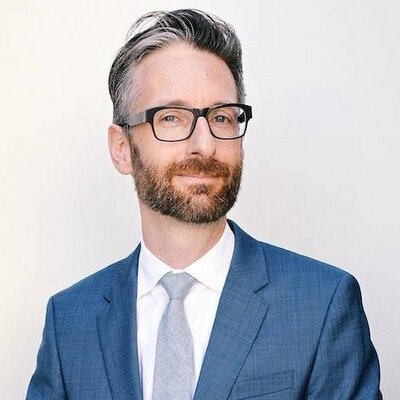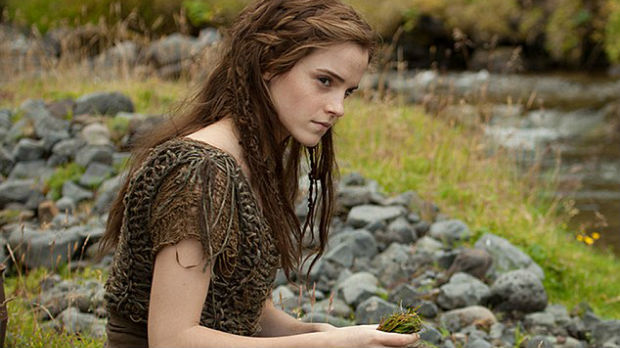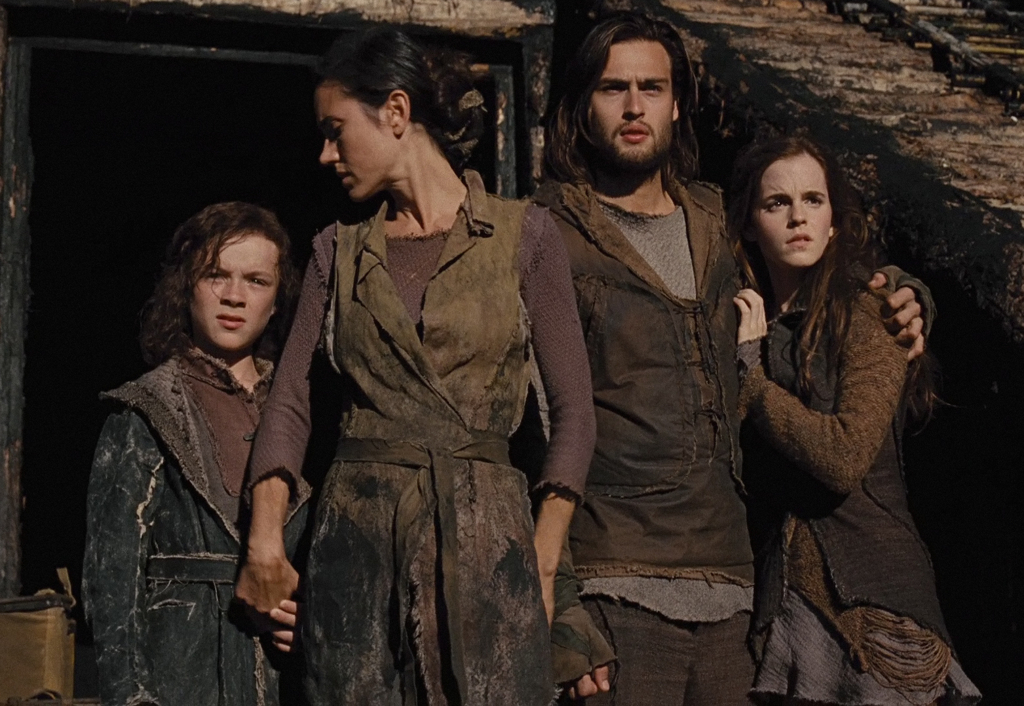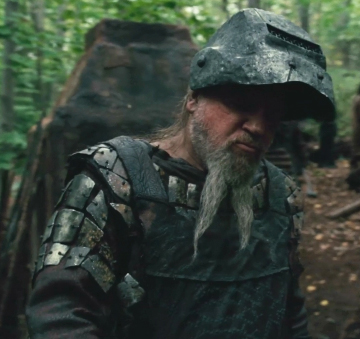 With Oscar voting in progress, let's talk costume design. With Best Picture contenders hogging all the conversation, we remain ever hopeful that the guilds remember to look beyond the films as a whole to the specifics of their particular craft when they scribble down their nominations. One of the most influential costume designers working today is Michael Wilkinson who regularly pushes the envelope in terms of costume technology (see Tron Legacy) and I'm not talking about the miraculous cleavage feats of American Hustle which won Wilkinson a well-deserved Oscar nomination last year. This year you can even see the influence of his 300 costumes in those Maze Runner harnesses (Fun fact: Christine Bieselin Clark, one of the costume designers on that film, was once Wilkinson's assistant!)
With Oscar voting in progress, let's talk costume design. With Best Picture contenders hogging all the conversation, we remain ever hopeful that the guilds remember to look beyond the films as a whole to the specifics of their particular craft when they scribble down their nominations. One of the most influential costume designers working today is Michael Wilkinson who regularly pushes the envelope in terms of costume technology (see Tron Legacy) and I'm not talking about the miraculous cleavage feats of American Hustle which won Wilkinson a well-deserved Oscar nomination last year. This year you can even see the influence of his 300 costumes in those Maze Runner harnesses (Fun fact: Christine Bieselin Clark, one of the costume designers on that film, was once Wilkinson's assistant!)
Prior to American Hustle he was best known for the films of Zach Snyder (Watchmen, Man of Steel) and the costume designer and I spoke between fittings on day 104 of the Batman v Superman: Dawn of Justice shoot (he'd just finished the final fitting of our new Amazon Princess Gal Gadot). This superhero epic has occupied him for well over a year but he says "happily so" but Noah was no easy task either. He built an entire film's worth of costumes for Noah ...from scratch.
No matter what genre or film he's working on, be it prestige dramas like Babel, indies like Friends with Money or huge superhero fantasies like Watchmen he's always look for ways to illuminate character. In his own words
Costume design is a subtle art but immensely satisfying.
We couldn't agree more. Excerpts from our conversation follow
NATHANIEL R: You've worked in so many genres from small films like Friends with Money or American Splendor to these big spectacles like Tron Legacy or Man of Steel. Does the creative process change radically from genre to genre?
MICHAEL WILKINSON: Different genres require a slightly different approach. There’s the expectation when you’re working in a fantasy film or something like a superhero film that the costumes are going to be memorable and compelling -- they’re going to look great when they’re on an eight story high billboard on Sunset Boulevard. When you’re working on a naturalistic film the costumes just have to feel right, not draw attention to themselves.
It's slightly different approaches but essentially the same craft. My whole thing is I use clothes to help tell the story and underline the themes and illuminate the character. I use color and material and fabric and drape to really give the audience subtle message about how the character feels about themselves and how they want to present themselves to the world.
How on earth would you even know how to start on something like Noah? It's obviously not set in any particular period. How do you even begin sketching it to crack it?
I think that’s why I was drawn to the project. It was such a challenge to create something that was stark and strong and appealing to an audience even though it was set in a timeless period. In the first meeting I had with Darren Aronofsky he wanted the audience to be unsure if the film was set 5 million years ago or 5 million years in the future.

We pretty quickly came up with this idea of a 'Modern Primitive' where I would create rough raw unique textiles that had a hand-made quality to them but use them in unexpected ways. We created modern edgy strong silhouettes using rustic fabrics. The juxtaposition of the ancient and modern helped give it a timeless mythological quality.
Did you have any red herrings while designing like 'maybe...no, no that wouldn't work?' or was this a quick arrival?
Darren was open to all sorts of influences. We went through a very elaborate research process. We really cast the net wide. I looked at a vast array of world cultures and their traditional clothing but i also looked at contemporary fashion designers like Rick Owens. We looked at photographers like Burtynski. We looked at movies like Valhalla Rising and the Herzog film Agguire: The Wrath of God
Love that.
Amazing. We really had an unfiltered approach to whatever felt useful to us in creating the story and original universe.
The color palette is fairly limited on Noah so were you leaning on texture more for characterization?

We thought a lot about the different groups and what materials and resources they’d have available to them and how their clothes reflected who they were and their approach to living on the planet. The first group was Noah’s family and we recognized that they were kind of early survivalists. they had a nomadic quality of living where they recycled material, you know, multi-use. The clothes were their shelter, their camouflage, they used them to carry things, fantastically practical. At the same time they were the first vegans in a way. We didn’t want to use any animal products so we used plant fibers for their fabric, vegetable dyes. That suggested the palette and textures for them that sent us off in a certain direction.
Another group were Tubal-cain and his soldiers. That group of people represented a society that had extracted metals and ruined the landscape. Their clothing was a combination of crude metals, primitive synthetics and a more grotesque use of animal products like fur, skins, bones, feathers and scales -- symbols of dominance.
 This sounds a million times more complicated than what one imagines while watching. But it's fascinating. I've thought about this with costume extravaganzas like Moulin Rouge! You know there's so much more than what you're actually seeing when costumes parade by on screen for just a little bit.
This sounds a million times more complicated than what one imagines while watching. But it's fascinating. I've thought about this with costume extravaganzas like Moulin Rouge! You know there's so much more than what you're actually seeing when costumes parade by on screen for just a little bit.
It’s phenomenal isn’t it? We came up with a whole manifesto of what materials people had. Darren and his writer Ari Handel - they went really deep with this. The world had a logic to it. When i was creating the illustrations, two things became apparent. I knew it would be all about the textiles which would create the palette. Second, I knew that we had to make everything from scratch. So with the fabrics we had this crazy exhaustive search. We sourced things from Istanbul and japan. We had custom textiles woven in Morocco from drinking straws , metal scraps, ribbons, wool fiber, leather strips. We really wanted to create a very original palette.
For the fabrics I gathered a really incredible team of textile artists. That was the biggest group. It was headed by a guy called Matt Reitsma an incredible textile artists. We had the luxury of months of experimentation. We did acid etching. We laminated fabrics together and burned through them.
We also explored techniques of putting costumes together: hand-weaving, knot work, braiding. It was the first time in a film I had an in-house knitter on staff to create these amazing primitive knitted garments. It was a gloriously creative and wonderful time.
Sounds like you had a giant budget.
It was important to Darren to be in New York. We had a workshop in downtown New York and we used lots of amazing local talents. Usually you rent clothes from costume houses for the background players and basic stock laying pieces. But we built everything. All the principals are made by hand -- hundreds of hours of hand sewing, reinforced stitching and binding. For the extras, I thought how are we going to create the hundreds of costumes we need for this film? I kind of approached it like building a fashion collection. We created 14 basic shapes, variations of pants and outerwear we used different fabrics and different details to create a big vocabulary of clothes we could use. We created thousands of pieces and all the footwear. Most was made in Morocco but the principles right there in New York.
Michael, now you’re just bragging!
[Laughter]
I’m totally kidding but this sounds insane. What are you going to do as a follow-up. I mean after Batman vs. Superman?
My criteria is what’s challenging to me and puts me outside of my comfort zone and gets my creative juices flowing? It could be from any period or genre. It just has to be a script i’m exciting about and filmmakers I want to work with and challenges in costumes that intrigue me.
You're on your fifth film with Zach Snyder. Any other directors you're eager to work with again?
I loved working with David O Russell on American Hustle. He really helped me get out of my comfort zone and access creative areas i hadn’t been to before. That was wonderfully liberating so hopefully that can continue into the future.
Any favorite costumes from your own work?
I’m particularly proud of Tron: Legacy. We came up with something very original and explored lots of interesting new costume technologies. But I try to be a good parent and not have a favorite child.

More with Michael Wilkinson later this year!
Related: Previous Interviews | More on Noah | More on Costume Design
